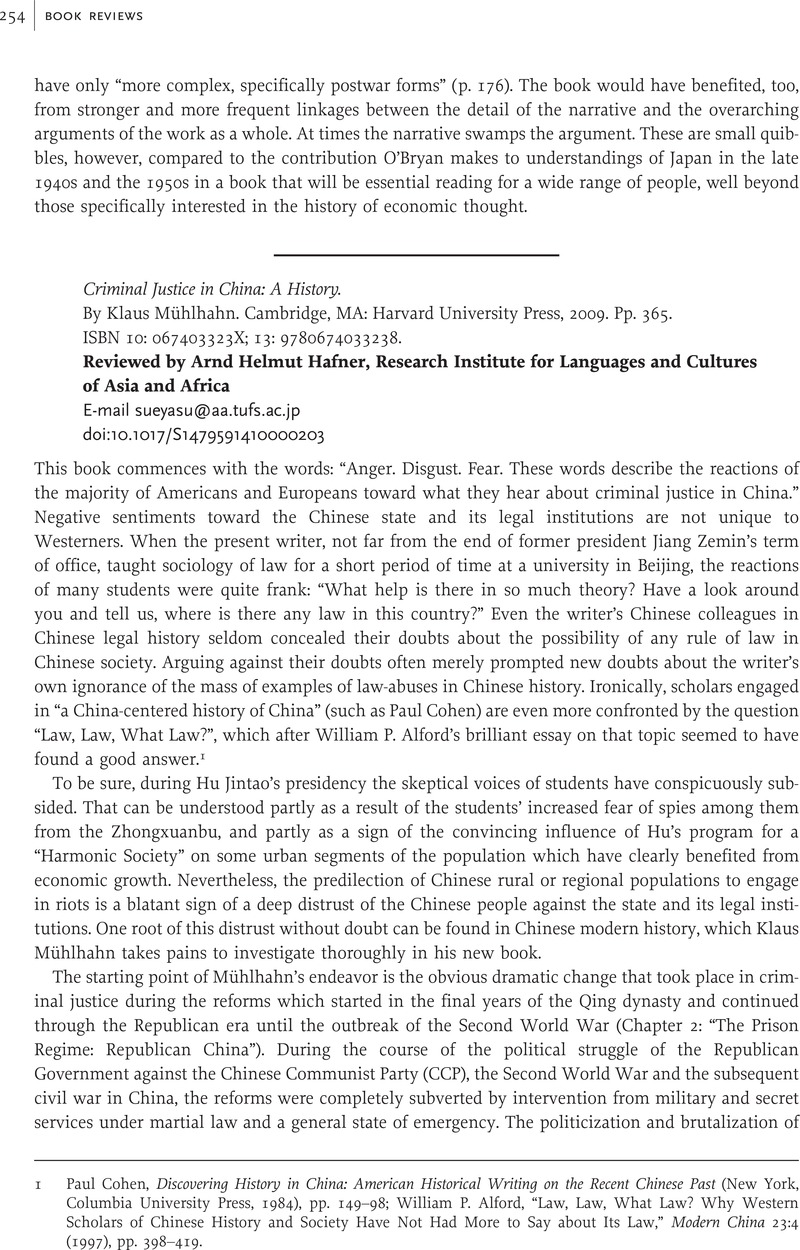No CrossRef data available.
Published online by Cambridge University Press: 15 June 2010

1 Cohen, Paul, Discovering History in China: American Historical Writing on the Recent Chinese Past (New York, Columbia University Press, 1984), pp. 149–98Google Scholar; Alford, William P., “Law, Law, What Law? Why Western Scholars of Chinese History and Society Have Not Had More to Say about Its Law,” Modern China 23:4 (1997), pp. 398–419CrossRefGoogle Scholar.
2 It is surprising that the author does not mention the influence of the politicization of criminal justice during the first thirty years of the PRC on its reputation and legitimacy. The conclusion that the current general distrust of the state and its institutions has roots in those times of political upheaval does not seem too far-fetched.
3 If we ask for culprits, we have to go back to Xue Yunsheng 薛允升, and Shen Jiaben 沈家本, the so-called fathers of modern studies on Chinese legal history. They cannot evade the charge of having abused Chinese legal history with the objective of promoting Western-style legal reforms. Especially Shen Jiaben's attack on “Bifu” 比附, one of the most essential elements of traditional legal reasoning, drawing, although knowing better, an analogy with “analogy” in Western legal reasoning, has left a big gap in our knowledge of traditional legal argument, jurisprudence and jurisdiction.
4 Naturally, this would go beyond the scope of “criminal justice”, but is not the seemingly unreserved equation of state violence with legal punishment in this book already a stretch of the concept of “criminal justice”?